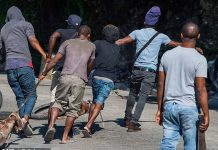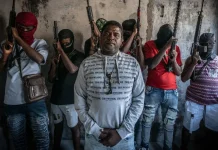On Tuesday, August 20, the U.S. Treasury Department imposed sanctions on former Haitian President Michel Martelly for his involvement in drug trafficking, including cocaine destined for the United States.
Martelly, who served as Haiti’s president from 2011 to 2016 and was previously a well-known musician, is accused of leveraging his political power to facilitate drug trafficking operations. According to the U.S. Treasury, Martelly was also involved in laundering drug proceeds, collaborating with local traffickers, and supporting various gangs in Haiti.
This move by the U.S. follows similar sanctions imposed by the Canadian government in 2022, targeting Martelly and two former Haitian prime ministers for their alleged connections to armed gangs. The sanctions reflect growing international concern over the involvement of political elites in Haiti’s crisis.
Haiti, the poorest country in the Americas, has been suffering from worsening gang violence, especially in the capital, Port-au-Prince, where criminal organizations control about 80% of the city. Residents face widespread violence, including threats of murder, rape, and kidnapping for ransom, amid severe political, social, and economic instability.
The situation worsened in February, leading to the resignation of then-Prime Minister Ariel Henry under pressure from armed groups. In response, hundreds of Kenyan police officers have been deployed to Haiti as part of an international effort to restore stability.
Bradley Smith, acting under-secretary for terrorism and financial intelligence at the Treasury, stated, “Today’s action against Martelly underscores the significant and destabilizing role he and other corrupt political elites have played in perpetuating Haiti’s ongoing crisis.” He emphasized that the sanctions demonstrate the U.S. government’s commitment to holding accountable those who contribute to gang violence and the destabilization of Haiti’s political landscape.
U.S. State Department deputy spokesperson Vedant Patel echoed this stance, affirming that the sanctions reflect the U.S.’s “unwavering resolve to promote accountability for individuals whose actions contribute to gang violence and destabilize Haiti, regardless of their position or status.”












